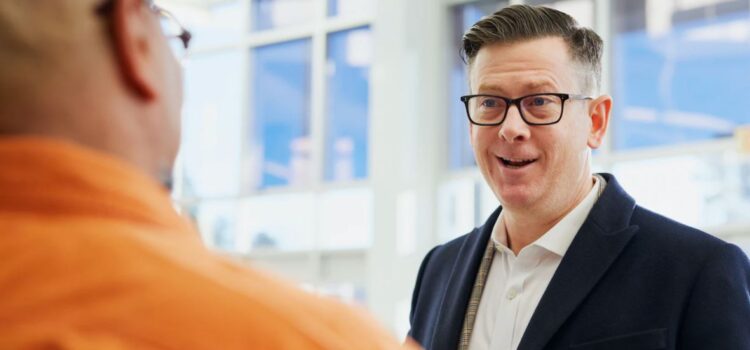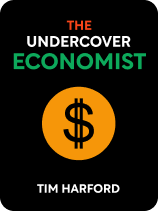

This article is an excerpt from the Shortform book guide to "The Undercover Economist" by Tim Harford. Shortform has the world's best summaries and analyses of books you should be reading.
Like this article? Sign up for a free trial here .
What are information gaps in economics? Are seller-buyer information gaps good for the economy?
When one party doing a business deal has more information than the other party, there is an information gap. Usually, the information gap is such that the seller has more information than the buyer. When this is the case, the market is not running efficiently.
This article explains the information gap, discusses how to close it, and examines how to solve broken health care systems using these economic principles.
What Is an Information Gap?
We’ll use the example of used cars to explain the concept of information gaps in economics. Let’s say half the cars on the used car lot are “peaches”—they run well—and the other half are “lemons”—there’s something wrong with them. The car salesman knows which are which, and the buyer does not. The peaches are worth an average of $6,000 to buyers. The buyer offers $3,000, which she thinks is a fair gamble for a car that could be a peach or could be a lemon.
- If the car is a lemon, the seller will jump at the chance to sell a car he knows is worth less than $3,000.
- If the car is a peach, the seller will refuse to sell a car he knows is worth more than $3,000.
Consequently, buyers offering $3,000 will only ever get lemons. If the buyer offers closer to $6,000 the salesman might give up a peach, but the buyer wouldn’t be willing to put up something like $5,500 for a 50% chance she’s getting a lemon.
In this extreme example, there is literally no market. Buyers who have even an ounce of common sense just won’t shop for a used car. Consequently, sellers won’t sell many used cars. Insider information helps no one. This only occurs when one group is ignorant and the other has knowledge. If both the buyer and the seller are ignorant, the market would resolve itself. The problem is the knowledge gap.
(Shortform note: Read our summary of Freakonomics to learn how unequal access to information affects you when you’re buying a house, and how the Internet is closing the information gap.)
Signaling Quality
So, how can we solve the knowledge gap? The first way is for vendors to signal quality, or to show customers that they are reliable. There are lots of ways for vendors to do this. In the car salesman example, trustworthy salespeople often have a showroom that’s a lot fancier than a used car lot on the side of a highway. These showrooms are fairly expensive and require long leases. If a salesperson has roots in the community thanks to their lease, they can’t just pick up and leave if they start selling lemons and word gets around that they are not to be trusted. If they can’t quickly leave and move on to a new group of suckers, they’re disincentivized to withhold important information from customers. Thus, customers trust salespeople with showrooms because the quality of the showroom signals that the seller can’t rip the buyer off.
This is also why old banks often found fancy buildings to conduct their business out of. If you’re giving your money over to an organization to hold, you want to make sure that it’s trustworthy. Signposts of trust like a stately building aren’t just nice frills: The expensive lease in the fancy building makes sure that vendors will be honest with customers.
There are many signals of quality that don’t involve real estate as well. For example, people like to poke fun at students getting their degree in a subject like philosophy. The popular argument is that philosophy doesn’t give students any marketable skills that will help them make money. But finishing a philosophy degree is another signal of quality. Philosophical arguments are dense. While reading and writing about them might not be directly related to whatever job a philosophy student has after graduation, it shows a level of commitment that employers pick up on. If someone is excited to study philosophy, they likely have a good work ethic.
Remember, though, that all of these examples are trade-offs. It might not be worth the money to pursue a philosophy degree, even if it does make it marginally easier to secure a job because you can better signal quality.
Finding Quality
While vendors can signal quality if they choose, it is often up to customers to find quality.
Let’s use renting an apartment as an example. When landlords show off an apartment to potential tenants, they are signaling quality by allowing customers to test that everything works in the apartment or look around the place and the neighborhood. But potential tenants and landlords can both find quality in one another to close the information gap. There are all kinds of forums where tenants can share positive or negative experiences about landlords: Potential tenants can seek out this information online, or ask other tenants in the building directly about whether the landlord is responsive. Landlords, though, need information about tenants as well before they agree to rent out their place. They don’t want tenants who can’t pay their rent. So they find quality: They regularly ask for bank statements, proof of employment, and tax returns. When each party has enough information about the other, they can comfortably complete the transaction.
Insurance
The knowledge gap is a big problem in the health insurance industry, especially in nations with broadly private health insurance systems like the United States. Let’s say that people who are prone to sickness are lemons and people prone to good health are peaches. If peaches—young people without health problems—don’t buy insurance, the market starts to disappear. Without their money paying into the system, insurance gets more expensive for those between a lemon and a peach, and their plans become too expensive to be worth the expenditure.
In turn, insurance becomes unreasonably expensive for the lemons who need it. In practice, the system doesn’t collapse like this, because people are often willing to pay more than a fair price for health insurance as essentially a bulwark against a giant, unexpected medical bill. In some senses, insurance in general, including health insurance, is able to depend on mutual ignorance. Without knowing what will happen in the future, it’s safer to pay into the system. But health insurance is particularly plagued with high costs.
Insurers Finding Quality
Often, people know more about whether they’re likely to get sick than health insurance companies. So insurers attempt to find quality from their customers. They do so by offering different kinds of plans. A plan with a higher deductible and a lower premium is attractive to people who are generally healthy because these plans cost less money each month. But for people who do have health problems, a low deductible, high premium plan is more attractive because if they do get sick, their insurance will cover more of their bills. The large insurance company Aetna has deductibles that range from $500 all the way to $5,000 per month.
When insurance companies know too much about a potential customer, though, they can deny coverage. If they know that you’re likely to get sick frequently, they’ll be more likely to deny coverage entirely, because even if you pay high premiums, you’ll likely cost them money.
(Shortform note: In the United States, the Affordable Care Act, passed after this book was written, attempted to prevent health insurance companies from denying coverage to potential customers with pre-existing conditions.)

———End of Preview———
Like what you just read? Read the rest of the world's best book summary and analysis of Tim Harford's "The Undercover Economist" at Shortform .
Here's what you'll find in our full The Undercover Economist summary :
- How to think like an economist
- How to use principles like scarcity, price targeting, the stock market, and game theory to make better decisions every day
- Why the economy is mostly about people, not complex math, graphs, or jargon





